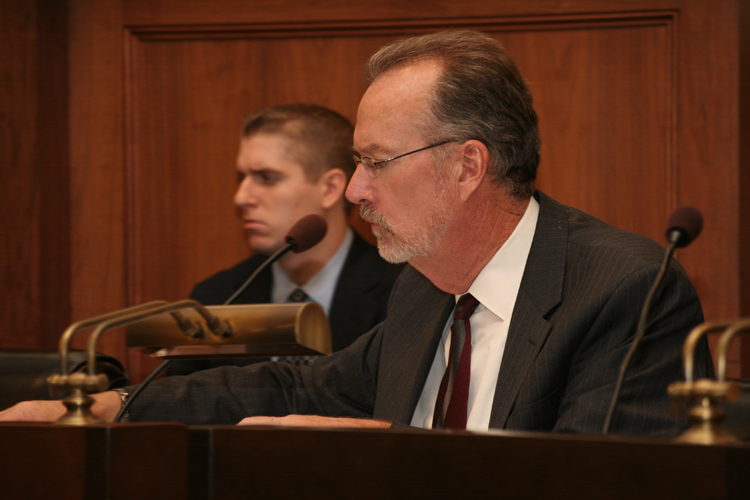
Measure Would Ensure Safer Worker Practices in Roadway Markings
TRENTON – A bill sponsored by Senator Jim Whelan which would prohibit the use or sale of reflective glass beads – used primarily in roadway markings – which contain a high level of inorganic arsenic was approved by the Senate Transportation Committee earlier this week by a vote of 3-0.
“When the glass bead manufacturing companies in question cut corners and shortcut safety standards, New Jersey’s road crews and environmental quality pay the price,” said Senator Whelan, D-Atlantic. “Inorganic arsenic is a known human carcinogen, and poses a significant health risk, not only to the transportation construction workers who are handling these materials, but also to the soil and groundwater quality when pollutants contaminate the surrounding area. This bill ensures that road construction projects abide by basic safety standards for our dedicated workforce as well as for the environment.”
The bill, S-2124, would prohibit, on or after January 1, 2011, any use, sale, manufacture or promotional give-away of reflective glass beads containing more than 75 parts per million of inorganic arsenic, a hazardous substance and human carcinogen as recognized by the United States Environmental Protection Agency (EPA) and Occupational Safety and Health Administration (OSHA). These glass beads, which are usually mixed in with roadway paint to create reflective lane markings, pose a significant health care threat to workers handling the materials, as well as an environmental threat to surrounding soil and water, according to Senator Whelan. Most of the beads which would be prohibited through this legislation are made in China, where lax safety regulations allow for cheaper production costs – by contrast, glass beads manufactured in the United States use a safer scientific process which does not require the use of arsenic in the manufacturing process.
Under the bill, violators would be subject to a penalty of not less than $500 or more than $1,000 for each offense. The bill stipulates that if the violation is of a continuing nature, each day during which it continues would be considered as an additional, separate and distinct offense for the purposes of levying a penalty.
“As New Jersey aggressively pursues transportation infrastructure dollars from the federal government, we’re going to see a boom in roadway construction,” said Senator Whelan. “While this will produce safer roads and put more people back to work, we have to be on-guard against lax safety standards which put our workers and our environment at risk. This bill ensures that we follow basic safety guidelines for the materials we use in road construction, and don’t put anyone in jeopardy for minor cost savings.”
The bill now heads to the full Senate for consideration.



